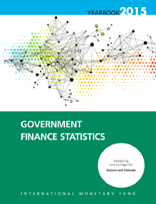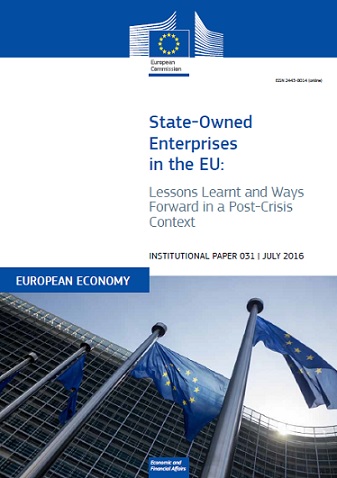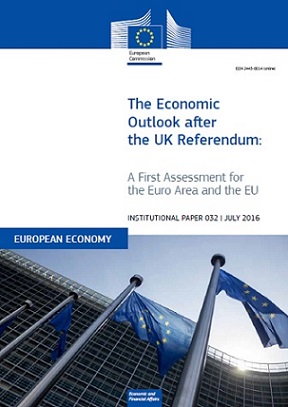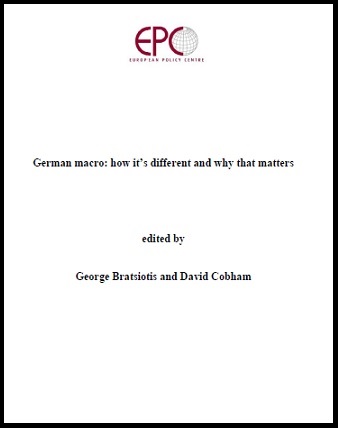Minenna, Marcello, (2016), “The ECB At A Dangerous Crossroad As Berlin Endangers QE”, Social Europe, 20 July In the stormy aftermaths of Brexit, with Eurozone stock markets losing 8% on average and Sterling crashing, government bonds have remained substantially unperturbed. The ECB shield, in the form of the €80 billion of Public Sector Purchase Program (PSPP) monthly asset purchases, has been remarkably effective and has reduced volatility to the bare minimum. …Read More
Government Finance Statistics Yearbook 2015
International Monetary Fund, (2016), “Government Finance Statistics Yearbook 2015”, IMF, June This annual publication provides detailed data on transactions in revenue, expense, net acquisition of assets and liabilities, other economic flows, and balances of assets and liabilities of general government and its subsectors. The data are compiled according to the framework of the 2014 Government Finance Statistics Manual, which provides for several summary measures of government fiscal performance. Relevant …Read More
State-Owned Enterprises in the EU: Lessons Learnt and Ways Forward in a Post-Crisis Context
European Commission, (2016), “State-Owned Enterprises in the EU: Lessons Learnt and Ways Forward in a Post-Crisis Context”, European Commission, Institutional Paper 031, July Recent experience has shown that State-Owned Enterprises (SOEs) can be an important source of concerns in at least three areas: market functioning, public finances and financial stability. Given their economic role, it is important to develop a comprehensive EU-wide overview on SOEs in order to consistently explore …Read More
Single market access from outside the EU: three key prerequisites
Darvas, Zsolt, (2016), “Single market access from outside the EU: three key prerequisites”, Bruegel, 19 July In relative terms, Norway’s current net financial contribution to the EU is similar to the UK’s. Switzerland and Liechtenstein pay surprisingly little, while Iceland is a net beneficiary. Relative to their population, Switzerland, Norway, Iceland and Liechtenstein received about twice as large an inflow of EU immigrants as the UK. These countries also have to …Read More
The Economic Outlook after the UK Referendum: A First Assessment for the Euro Area and the EU
European Commission, (2016), “The Economic Outlook after the UK Referendum: A First Assessment for the Euro Area and the EU”, European Commisssion, Institutional Paper 032, July The economic landscape has not changed much in the weeks since the spring forecast was published on May 3, but the results of the UK referendum on 23 June have modified the conditions for the way ahead. The ‘leave’ vote has resulted in financial …Read More
German macro: how it’s different and why that matters
Bratsiotis, George, Cobham, David, (2016), “German macro: how it’s different and why that matters”, European Policy Centre, 29 Αpril Do the macroeconomics of the German political establishment really differ from standard western macroeconomics? That question was the starting point for the seminar on ‘German macro: How it’s Different and Why that Matters’, which was held at Heriot-Watt University in December 2015, with financial support from the Scottish Institute for Research in Economics (SIRE) …Read More
Fleeing the centre: the rise of challenger parties in the aftermath of the euro crisis
Hobolt, Sara B., Tilley, James, (2016), “Fleeing the centre: the rise of challenger parties in the aftermath of the euro crisis”, West European Politics, 16 June This article argues that both sanctioning and selection mechanisms can help to explain this flight from the centre to challenger parties. First, voters who were economically adversely affected by the crisis punish mainstream parties both in government and in opposition by voting for challenger …Read More
The unintended consequences of the zero lower bound policy for the money market funds industry
Di Maggio, Marco, Kacperczyk, Marcin, (2016), “The unintended consequences of the zero lower bound policy for the money market funds industry”, Voxeu, 19 July The zero lower bound policy for nominal interest rates was implemented to stimulate sluggish economic growth and boost employment. This column explores whether this policy had unintended effects on the money market fund industry. Traditionally enjoying relatively low and safe returns, money market funds could respond to the low …Read More
How to fix Italian banks
Amihud, Yakov, Favero, Carlo, (2016), “How to fix Italian banks”, Voxeu, 19 July The public debate over how to resolve the problem of Italian banks centres on whether there should be a government bailout, or whether banks’ bondholders should bear the burden. Absent from the discussion is what will happen to the banks’ stockholders, who should theoretically be wiped out before bondholders are asked to undergo a haircut. This column addresses the problem …Read More
Increasingly unequal? The economic crisis, social inequalities and trust in the European Parliament in 20 European countries
Sani, Giulia M. Dotti, Magistro, Beatrice, (2016), “Increasingly unequal? The economic crisis, social inequalities and trust in the European Parliament in 20 European countries”, European Journal of Political Research, 13 January The 2008/2009 economic crisis has been identified as an important element contributing to declining trust in institutions in Europe and worldwide. However, it is unclear whether this decline in trust is distributed homogenously among citizens or whether there are …Read More








